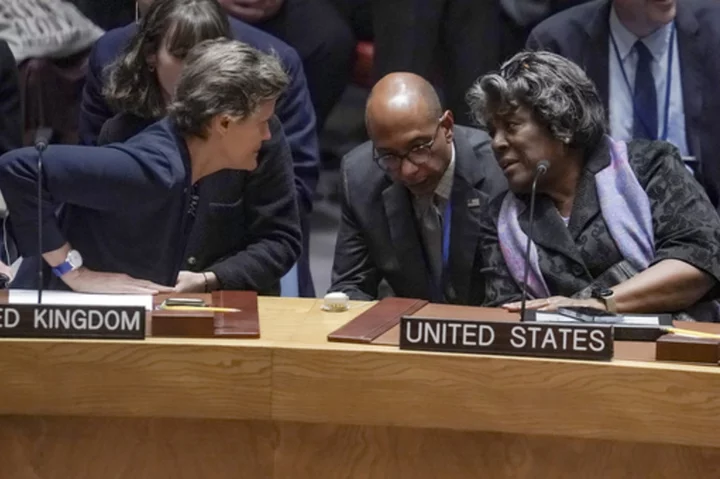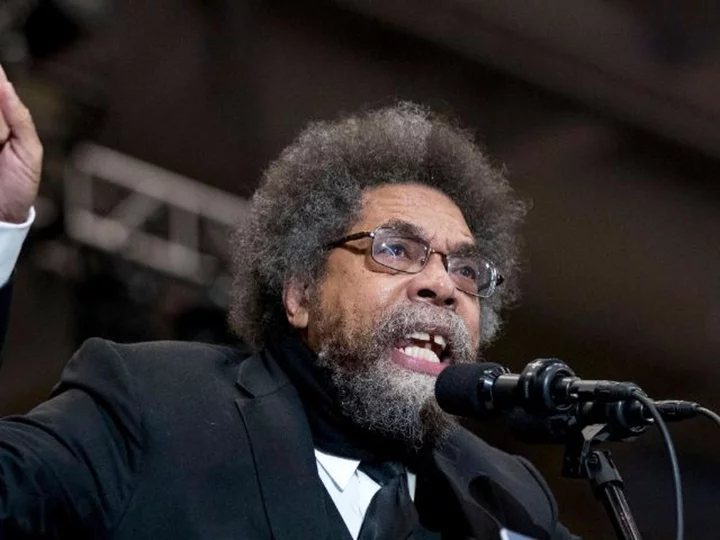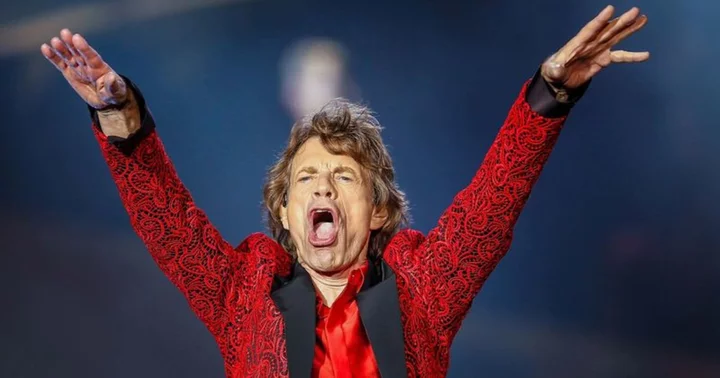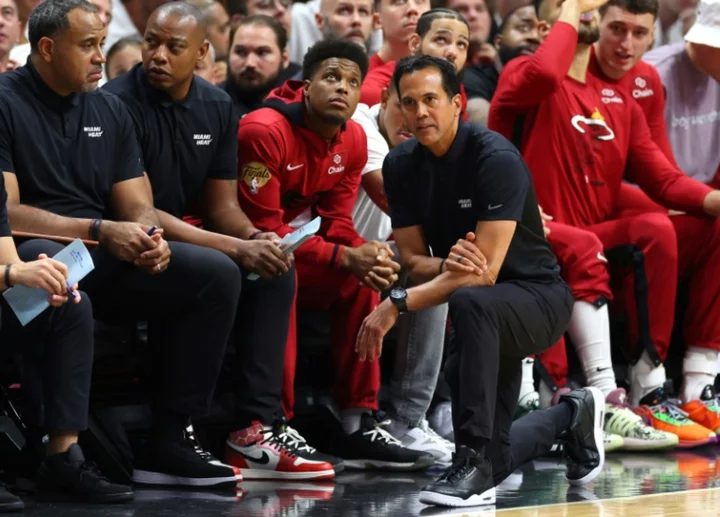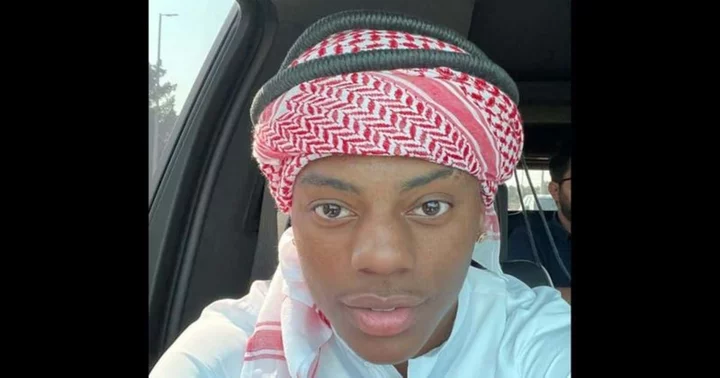UNITED NATIONS (AP) — The U.N. Security Council failed again Wednesday to address the Israeli-Hamas war in Gaza, rejecting rival United States and Russian resolutions.
The council is the U.N.’s most powerful body, charged with maintaining international peace and security, but its divisions have left it impotent and scrambling to try to find a resolution with acceptable language.
The resolution drafted by the United States, Israel’s closest ally, would have reaffirmed Israel’s right to self-defense, urged respect for international laws — especially protection of civilians — and called for “humanitarian pauses” to deliver desperately needed aid to Gaza.
In Wednesday’s vote in the 15-member council, 10 countries voted in favor, Russia, China and the United Arab Emirates voted against, and Brazil and Mozambique abstained. The resolution was not adopted because permanent council members Russia and China cast vetoes.
The Russian resolution, which was then put to a vote, would have called for an immediate “humanitarian cease-fire” and unequivocally condemned Hamas’ Oct. 7 attacks in Israel and “indiscriminate attacks” on civilians and civilian objects in Gaza.
In that vote, four countries voted in favor – Russia, China, United Arab Emirates and Gabon. The United States and United Kingdom voted against, and nine countries abstained. The resolution wasn’t adopted because it failed to get the minimum nine “yes” votes.
The failure of the two resolutions followed the council’s rejections last week of a Russian resolution that didn’t mention Hamas and also failed to get nine “yes” votes and a widely supported Brazilian resolution vetoed by the United States that would have condemned the Hamas attacks and all violence against civilians and called for “humanitarian pauses.”
After the votes, Malta’s U.N. Ambassador Vanessa Frazier, speaking on behalf of the 10 elected members of the council serving two-year terms, announced they will be working on a new proposal in the coming days.
“As elected members of this council, we also represent the rest of the international community and we have a duty and an obligation to act,” she told the council. “There is no time to waste.”
Before the vote, U.S. Ambassador Linda Thomas-Greenfield told the council that last week she had said diplomacy needed to play out before it approved a resolution. She pointed to action by U.N. Secretary-General Antonio Guterres, President Joe Biden, and regional leaders that led to the opening of the Rafah crossing from Egypt to Gaza to the delivery of some desperately needed humanitarian aid, though “much, much more help is needed” as well as the release of four of the more than 200 hostages taken from Israel.
Thomas-Greenfield called this moment a test for the international community and for the council. She accused Russia of introducing a resolution at the last minute “in bad faith” with no consultations, and urged members to vote for the “strong and balanced” U.S. text.
Russia’s U.N. Ambassador Vassily Nebenzia countered that an immediate humanitarian cease-fire is needed to de-escalate the conflict and reduce the bloodshed and “shocking” Palestinian casualties. He called the U.S. draft “politicized” and claimed the United States doesn’t want the Security Council to have any influence on a possible Israeli ground offensive that “would risk provoking an even larger-scale conflict in the region and possibly even beyond.”
After the vote, China’s U.N. Ambassador Zhang Jun said the U.S. draft contained many elements that went beyond humanitarian needs and were “deeply divisive.” He called it “evasive on the most urgent issue of ending the fighting” and said it failed to reflect the world’s strong calls for a cease-fire.
United Arab Emirates Ambassador Lana Nusseibeh, the Arab representative on the council who voted against the U.S. resolution and for the Russian draft, said the U.N. and humanitarian organizations have made clear that what is essential is a humanitarian cease-fire, the release of all hostages, and sustained humanitarian access to Gaza.
At a council meeting on the war Tuesday that heard nearly 90 speakers, there were “dozens of statements imploring this council to assign the same value to Palestinian life as it does to Israeli life,” Nusseibeh said. “We cannot allow any equivocation on this point.”
Israel’s U.N. Ambassador Gilad Erdan thanked the U.S. and other nations that supported its resolution for condemning “savage genocidal terrorists while standing up for the values of freedom and security.”
Those who voted against the resolution showed the world the Security Council is incapable of condemning “terrorists and cannot confirm the right to self -defense of the victim of these heinous crimes.”
Riyad Mansour, the Palestinian U.N. ambassador, told the Associated Press after the vote “it’s disgusting the Security Council is not shouldering its responsibility” to “stop the war."
“You do not start by killing the people and then say that I want to deal with the situation,” he said. “We need to save lives. … That is the most urgent priority.”
With the Security Council still paralyzed, the Palestinians are turning to the 193-member General Assembly where there are no vetoes — just as Ukraine did after Russia's February 2022 invasion. The assembly's emergency special session opens Thursday, with 106 speakers on the list, and Arab nations have circulated a draft resolution which Mansour said he expects to be put to a vote on Friday afternoon.
The draft resolution calls for an immediate cease-fire, demands that Israel rescind its order for Gazans to move from the north to the south, calls for maximum restraint, and demands that essential goods including food, water and medicine are provided in the Gaza Strip.
___
Find more of AP’s coverage at https://apnews.com/hub/israel-hamas-war

